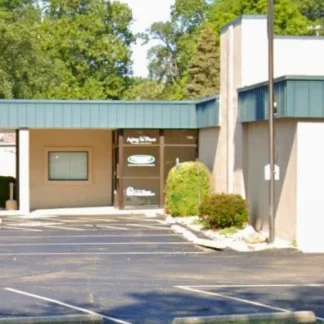Rosecrance - West Hill street
Rosecrance - West Hill street is a non-profit rehab located in Champaign, IL. Ro...
ACCENT Counseling offers outpatient services for individuals struggling with behavioral health issues. They serve both adults and adolescents. ACCENT Counseling is located at Champaign, Illinois.
They offer DUI evaluations, education and other counseling treatments. Counseling include individual and group counseling.
They provide treatment services for both adults and adolescents, their counseling services include addiction or chemical dependency, anxiety, depression, stress relief and grief.
The cost of individual therapy is $80 an hour. For family therapy is $130.
Their DUI services include DUI evaluations, Alcohol and drug assessments, DUI Risk Education and Substance Abuse Counseling. Risk Education classes is required to everyone who gets a DUI. The program duration is 10 hours. Classes are held on evenings.
Contact us for more information: (217) 398-8067

Connect with ACCENT Counseling by calling their admissions team directly.
(217) 398-8067 Website Get DirectionsDialectical Behavior Therapy (DBT) is a modified form of Cognitive Behavioral Therapy (CBT), a treatment designed to help people understand and ultimately affect the relationship between their thoughts, feelings, and behaviors. DBT is often used for individuals who struggle with self-harm behaviors, such as self-mutilation (cutting) and suicidal thoughts, urges, or attempts. It has been proven clinically effective for those who struggle with out-of-control emotions and mental health illnesses like Borderline Personality Disorder.
Research clearly demonstrates that recovery is far more successful and sustainable when loved ones like family members participate in rehab and substance abuse treatment. Genetic factors may be at play when it comes to drug and alcohol addiction, as well as mental health issues. Family dynamics often play a critical role in addiction triggers, and if properly educated, family members can be a strong source of support when it comes to rehabilitation.
Group therapy is any therapeutic work that happens in a group (not one-on-one). There are a number of different group therapy modalities, including support groups, experiential therapy, psycho-education, and more. Group therapy involves treatment as well as processing interaction between group members.
In individual therapy, a patient meets one-on-one with a trained psychologist or counselor. Therapy is a pivotal part of effective substance abuse treatment, as it often covers root causes of addiction, including challenges faced by the patient in their social, family, and work/school life.
Research clearly demonstrates that recovery is far more successful and sustainable when loved ones like family members participate in rehab and substance abuse treatment. Genetic factors may be at play when it comes to drug and alcohol addiction, as well as mental health issues. Family dynamics often play a critical role in addiction triggers, and if properly educated, family members can be a strong source of support when it comes to rehabilitation.
Group therapy is any therapeutic work that happens in a group (not one-on-one). There are a number of different group therapy modalities, including support groups, experiential therapy, psycho-education, and more. Group therapy involves treatment as well as processing interaction between group members.
In individual therapy, a patient meets one-on-one with a trained psychologist or counselor. Therapy is a pivotal part of effective substance abuse treatment, as it often covers root causes of addiction, including challenges faced by the patient in their social, family, and work/school life.
Group therapy is any therapeutic work that happens in a group (not one-on-one). There are a number of different group therapy modalities, including support groups, experiential therapy, psycho-education, and more. Group therapy involves treatment as well as processing interaction between group members.
In individual therapy, a patient meets one-on-one with a trained psychologist or counselor. Therapy is a pivotal part of effective substance abuse treatment, as it often covers root causes of addiction, including challenges faced by the patient in their social, family, and work/school life.
In individual therapy, a patient meets one-on-one with a trained psychologist or counselor. Therapy is a pivotal part of effective substance abuse treatment, as it often covers root causes of addiction, including challenges faced by the patient in their social, family, and work/school life.
Rosecrance - West Hill street is a non-profit rehab located in Champaign, IL. Ro...
Carle Addiction Recovery Center is a behavioral health and substance abuse treat...
The Pavilion Behavioral Health Center is located in Champaign, Illinois. The Pav...
Champaign Treatment Center is a private rehab located in Champaign, IL. Champaig...